- Home
- Zoe Dawson
Ruckus (SEAL Team Alpha Book 1)
Ruckus (SEAL Team Alpha Book 1) Read online
Ruckus
SEAL Team Alpha
Zoe Dawson
Contents
Acknowledgments
Prologue
Chapter 1
Chapter 2
Chapter 3
Chapter 4
Chapter 5
Chapter 6
Chapter 7
Chapter 8
Chapter 9
Chapter 10
Chapter 11
Chapter 12
Chapter 13
Chapter 14
Chapter 15
Chapter 16
Epilogue
Glossary
About the Author
OTHER TITLES BY ZOE DAWSON
Ruckus
Copyright © 2017 by Karen Alarie
Cover Art © Robin Ludwig Design, Inc.
All rights reserved.
No part of this book may be reproduced in any form or by any electronic or mechanical means, including information storage and retrieval systems, without written permission from the author, except for the use of brief quotations in a book review.
This book is a work of fiction. Names, characters and incidents either are products of the author’s imagination or are used fictitiously. Any resemblance to actual events or locales or persons, living or dead, is entirely coincidental.
ISBN: 978-0-9909075-9-6
Created with Vellum
Acknowledgments
I’d like to thank my beta readers and editor for helping with this book. As always, you guys are the best.
For anyone who has found forgiveness difficult. I hope you find your way.
Hell, there are no rules here. We are trying to accomplish something.
Thomas Edison
1
Turbo, Columbia, South America
Heading into the world’s most dangerous jungle hadn’t been on Dana Sorensen’s radar until months ago when she’d gotten an email from her dying mother asking Dana to do something for her. Tell these peoples’ stories. Let the public know what was happening. It had been the last correspondence Dana had received before her mom, her brave, beautiful, accomplished mom had lost her fight with cancer.
As a surgeon involved with Doctors Without Borders, her mom had met and married Dana’s dad, who was a nurse also serving with them. She often wondered if she could even live up to her mom’s ability to be so selfless.
Even as the tears moistened her eyes, Dana tried to tell herself that she had no way of knowing her mom was going to go so fast, before Dana could get home. And, with guilt pressing in from all sides, eating at her, the grief still fresh, Dana was going to fulfill her mom’s dying wish. Come hell or high water.
She’d pitched her mom’s story to the editor for Trek Magazine about migrants traveling through the Darién Gap to make it from Colombia to Panama, then up through the Central American peninsula with the final destination the US. It had all stemmed out of her mom’s last trip to Asia where she’d found out that a lot of migrants were heading through South America to bypass the routes that had dried up due to stronger restrictions. And it wasn’t just Asia, but a slew of foreigners looking for a better life free from war and persecution.
But here she was standing on a dock in Turbo, Colombia, a disreputable port town rife with violence on the coast of Colombia and in the horseshoe of the Gulf of Urabá to fulfill her mom’s wish. It was just before dawn, the sun nothing but a glimmer on the horizon. She waited for a boat that would take her and her crew into the Darién Gap, a place that was teeming with dense jungle, dangerous wildlife, impenetrable swamps, wary guerrillas, intense paramilitary, deadly drug traffickers, disreputable guides and no marked trails.
The Darién might be a ten-thousand-mile swath of inhospitable land, but Dana was a correspondent who, due to her mom and dad’s noble example, had given up reporting about the war in exchange for pieces on the human condition. She was now a writer, photographer, filmmaker and contributing editor to International Humanitarian Journal. From her war correspondent experience, she could handle stressful encounters and dangerous people as situations that were all in a day’s work. She’d had some harrowing experiences in her life, but had gotten the story every time. This piece was timely, a hot button and would allow her to showcase what people would do for freedom and a better life along with keeping her promise to her mom. But going into the Gap was risky. She was well aware of the dangers, but had never let that stop her before. These stories needed to be told.
She needed to tell them.
There were several people with her from her film company, along with porters heading to Domingodo to meet up with a representative from the Revolutionary Armed Forces of Colombia or FARC, Cuba-backed guerrillas who had been at war with Colombia since 1964. They controlled the most direct route through the Gap, and it would be her best chance of meeting and talking to migrants attempting the crossing. Permission had been obtained from an official in Havana to pave the way for her and her crew to do this timely story.
The soft drone of an outboard motor broke the predawn quiet. James Quinn, a freelance videographer she’d hired to document the trip leaned over and said, “Are you ready for this?”
She smiled. “I was born ready.” He and her South African producer and naturalized American, Liam Nelson were the two crew members accompanying her on the trip. Her cell chimed and she pulled it out of her cargo pants and read the screen. Jeffrey. He had been calling ever since she’d left San Diego and her office to make this trip. She hit the accept button and said, “Hi, there.”
“Dana, geez woman, you’ve been a hard one to get a hold of. I really needed to talk to you before you left. It was important.”
“I know, but the okays came through for this trip and I had to go. You understand.”
He sighed heavily. “I do. I know how much your mom meant to you.” At his words, her eyes filled, and she worked at not losing it. “Look I’d be the first one to say what you do is great. You have more courage than some men I know. I would never stand in the way of that, but—”
“I know, and I promise to make time when I get home.” She wiped her slick palm on her pants. Why was this simple conversation with Jeff making her palms sweat? She swallowed and kept her voice nonchalant. Because she had been sure that he was going to pop the question. That’s what he wanted to talk to her about—getting married. She wasn’t sure she was ready for that. If she would ever be ready for that.
She squeezed her eyes closed on that thought, the unnamed emotion clogging her chest. Every time she thought about marriage it would crop up like some kind of plague. She’d been in some pretty scary situations, so why did marriage make her want to run for the hills like a scared little girl?
“Promise?” he said.
“Promise,” she replied. The motor boat pulled up beside the dock along with another boat whose engine had been drowned out by their transportation. It was a ferry to Sapzurro and Capurganá where migrants could then traverse overland to La Miel, Panama. These migrants weren’t forced to go through the Gap as they had documentation that would allow them to pass without a problem. That wasn’t the route of her story.
People without documentation were forced to hire coyotes, part of the Clan Los Piratas who would charge between five hundred to seven hundred dollars, and transport them in poorly maintained boats, often leaking. But were also notorious for conscripting migrants as mules, then disposing of them.
That was her story.
The most dangerous clan in the area, Clan Los Piratas was a neo-paramilitary group with upwards of twenty thousand members. Dana had read that they had murdered several Americans, many DEA agents in the area and were on the US government’s list. They had a stron
ghold in the Darién Gap, but she was confident they wouldn’t bother them with their FARC approval and their sanctioned story about the migrants.
Even as the sun rose and the misty jungle lay like a dense, dark giant across the river, she shivered in the steamy air.
As her crew loaded up their gear into the motor boat, Dana disconnected the call. She’d worry about Jeff when she got home. She didn’t need distractions on this trip.
After meeting their contact, Captain Enrique Escobar, a middle-aged, dark-haired man with gray at the temples and in his close-cropped beard, his sharp eyes and features telling Dana he had seen plenty in the Gap. During the dire week, with the constant threat of robbery, kidnapping, and death, he and his men hiked the route, while she and her crew recorded one of the world’s most dangerous journeys. She and her crew had hacked through spider-infested mangrove swamps, walking for days in muggy, ninety degree temperatures, the migrants surviving on crackers and gulping river water. Each of these people—a man from Jafar, Bangladesh trying to escape its cutthroat political gangs and miserable working conditions; another Bangladesh woman, not much more than a girl—a rural laborer who’d gone to the jam-packed cities for work and found herself locked in the bowels of unlicensed garment factories working for twenty cents an hour; and countless others, Syrians, West Africans, and Cubans. She’d interviewed many of them who told their heartbreaking stories. She and her crew documented everything on memory cards and they were carefully kept in a waterproof bag in her pack. By accident, she found some old footage of her and her mom when she’d met up with her overseas and interviewed her for a piece that had never been aired. Stupidly, she’d forgotten about it and realized this was her only copy. She’d edit this and get it aired when she got home. She’d contact someone she knew at 60 Minutes or National Geographic who would jump at the chance.
Once they reached their destination, they were stopped by Senafront, Panamanian soldiers who guarded the border, the travelers’ hopes of freedom and respite were dashed. The migrants were denied entry into Panama, everything they had suffered and endured had been in vain. Fighting her sense of justice, she tried to tell the Panamanian patrol what kind of journey they had made, how courageous they had been. The officer was sympathetic, but he had no choice, he had to follow orders.
There was nothing she could do. All that was left for her was to tell their story, document their journey so that their efforts meant something. A painful discomfort under her sternum along with a healthy dose of guilt suffused her as she boarded a piragua to take them to Panama City and the airport for their trip out of the Gap. Home to San Diego to civilization, concrete and glass, teeming with urbanites. But her uneasiness wouldn’t go away. She tried to think about processing this film and documenting the trip. Her heart was heavy, real sorrow for the plight of the people she’d gotten to know so well in the week of traveling with them through the dangerous and deadly Gap, an emptiness deep inside she couldn’t name for fear of…what?
As a storm came up quickly and violently out of the south, they were forced to pull to the bank to wait it out.
Dana pitched her waterproof tent and settled inside, lying down on her side. As the leaded sky darkened, she fell into a fitful sleep.
She woke to the crack of gunfire, screaming and running feet. Before she could move, a gun was shoved into her back. She looked over her shoulder at the merciless dark eyes of the man holding the weapon. “Hello, Dana Sorenson. I’ve got a job for you.”
Before she could gasp a response, he had her out of the tent.
“Who are you?” she demanded. “What do you want?”
“Oh, before too long you will know who I am and what I want.”
A black hood descended cutting off light and hope. When she fought, someone clipped her on the back of the head and she fell to the ground.
She’d been taken.
Kidnapped.
Somewhere over Mexico
Lieutenant Bowie “Ruckus” Cooper leaned his head against the side of the chopper. He could sleep anywhere and often had in his twenty years in the SEALs. They had just lifted up from Mexico in support of the DEA and their operations. With a high-value target or HVT secured, they were headed back to Coronado and some R&R.
Seven other SEALs were in the chopper with him. Part of his deployment team, his family, his brothers. They were all cut from the same cloth and there was comfort in that, a unity among them that was unique and recognized between them. Normally, SEALs deployed in either eight-man squads or four-man teams.
The men he trained and fought with built close personal bonds between them. Probably the most important part of a team was the utmost trust they have for each other. It saved Ruckus when the inconsistency and heartache of his family situation left him alone at seventeen.
Each SEAL’s control over his thinking was what separated them from everyone else.
Right across from him was Ruckus’s point man and lead sniper, Petty Officer Ashe “Kid Chaos” Wilder. A man who lived up to his name. Never reckless, often a smart-ass, but always courageous, Kid was the youngest member of their team and one of the best shots in the navy.
Next to him was Chief Petty Officer Wes “Cowboy” McGraw, an honest to God cowboy from Texas who had lived and manned a working ranch, from the kind of stock that tamed the Old West and were recruited as Texas Rangers. He attained his rank in record time and wore his anchor, the symbol of his rank and that of the navy with the kind of honor it embodied. Navy chiefs kept tradition, ceremony and honor alive—a true anchor of the navy. He was Ruckus’s valued go-to second when things got hairy and his main planning buddy.
To his right was Petty Officer Thorn “Tank” Hunt, their K9 handler who could juggle combat, a weapon with ease and his dog Echo, a Belgian Malinois who reclined right next to him, quiet and alert. He was an exacting guy not only with everyone he met, but with himself, a tough taskmaster who took “control freak” to a new level. The man could commandeer, drive, pilot, navigate or ride anything with wheels or runners.
To Cowboy’s left was Petty Officer Ocean “Blue” Beckett, a fair-haired California surfer dude that could out swim anyone in Team Seven. He was their sniper and expert corpsman, so skilled the guy could become a doctor if he hadn’t decided on the SEALs as his career. He was a boy-next-door type on steroids, loved that touchy/feely crap but could balance it with his fierce warrior instincts and a Yoda/Obi-Wan Kenobi, Jedi master/sage philosopher attitude who would often stun them with his insights.
Their communication expert and air controller, Petty Officer Arlo “Scarecrow” Porter, a Southern badass from bayou country who knew how to charm everyone, but excelled specifically with the fairer sex. He was affable until you put him in a firefight and watched him go to town. He was adept at bringing attack aircraft to the exact coordinates when they needed them for egress or cover, a true orator with Tom Sawyer skills of manipulation.
Petty Officer Orion “Wicked” Cross, a tall, quiet gourmet cook, a master at detail sat next to Scarecrow. Wicked was limitless, an Olympic-level rower before BUD/S and the team’s breacher, sniper and lead assaulter. Typical of the men here, he didn’t like being told what to do, but then these men were dedicated to the team and getting the job done. It was all about giving Wicked as much rope as possible to do his thing while staying on point both in the military and in combat.
Finally, Petty Officer Jude “Hollywood” Lock, their heavy weapons expert. He had to be the most positive guy Ruckus had ever met and knew all about entertainment, in any context—board games, cards, sports, movies and even Broadway, the guy was a master. He smiled no matter the climate or condition, a definite boost in any group. Ruckus was sure the guy would explode if he couldn’t help someone, somewhere, at any time. Sometimes Ruckus thought his actual nickname should have been Boy Scout. He would definitely drop everything to usher an old lady across the street. He was also the team’s most notorious lothario.
Just as he was drifting off, his headset came ali
ve.
“Lieutenant Cooper?”
“Cooper here,” Ruckus said keying his mic, his head coming off the glass, instantly alert.
“Change of plans.” It was the voice of his mentor and task unit commander, Major Todd McRae.
Ruckus smiled. That’s what this job was all about.
The next thing he knew they were landing on the USS Annenberg, out of Naval Base Coronado, an aircraft supercarrier named after Admiral Jake “Tugboat” Annenberg. The carrier floated just off the coast of Panama, a warship that served as an airbase with a flight deck and home to thirty-two hundred sailors and marines and twenty-four hundred aviators. All eight of them and Echo exited the aircraft, still looking worse for wear. Fresh from battle, they crossed the flight deck to a waiting figure.
“Lieutenant Cooper,” Major Todd McRae said, and he nodded to Ruckus and the men behind him. He shook Ruckus’s hand. “We’re aware you guys have been in the field, but we’ve got a HVT we need you to go after. We just got the intel and you were the closest and best match. First, let’s get you some chow.” Tall, his dark hair going to salt and pepper, Todd had been with Ruckus through his formative years with the navy, directed him into officer training and been the father Ruckus had needed.
“Aye, sir,” Ruckus said as they headed to the mess and ate their fill, cleaned up as much as they could, and restocked both their ammo and field kits for a three-day long-range reconnaissance patrol or LRRP.
Once that was complete, they headed up to a ready room complete with comfortable chairs.
When McRae walked in, Ruckus said, “Attention on deck!”
Everyone rose until McRae said, “As you were, gentlemen.”
Returning to their seats, the major turned off the lights and an illuminated map of the Darién Gap appeared. He walked to the head of the room and said, “For those of you who haven’t ever had the pleasure of being deployed into the Darién Gap, you’re in for a treat. It’s a thick jungle with mostly crude villages, para-military, FARC and clans fighting over freedom, drugs and routes. Be aware there are civilians in this area, some hikers, missionaries and, of course, the peaceful indigenous population, so use caution when engaging. It’s a mishmash of a mess. Deep in the jungle here…” He pointed to an area outlined in red in the heart of the greenery. “…is your target.” A picture flashed up on the screen. “This is Hector Salazar, the leader of Clan Los Piratas or the CLP as they’re widely known. He is an American by birth, but with a Colombian mother, he had ties to this area. Now he’s worked his way up the criminal drug runner’s ladder and is the new kingpin. He’s taken disenfranchised former para-military members from splinter groups and built an empire that is now warring with anyone in the Gap for control. The competition for massive drug profits is fierce and with the recent peace accords, it’s left a vacuum to fill.”

 Leashed
Leashed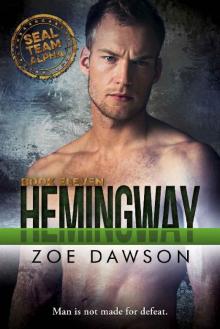 Hemingway (SEAL Team Alpha Book 11)
Hemingway (SEAL Team Alpha Book 11)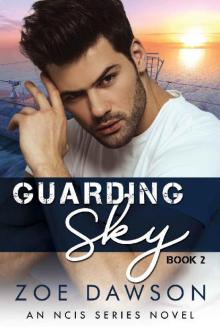 Guarding Sky (NCIS Series Book 2)
Guarding Sky (NCIS Series Book 2) Pitbull (SEAL Team Alpha Book 10)
Pitbull (SEAL Team Alpha Book 10)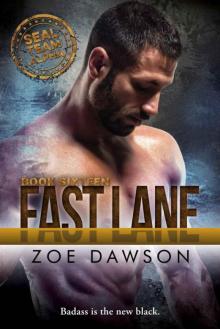 Fast Lane (SEAL Team Alpha Book 16)
Fast Lane (SEAL Team Alpha Book 16) Managing Emma (NCIS Series Book 7)
Managing Emma (NCIS Series Book 7) Dragon (SEAL Team Alpha Book 9)
Dragon (SEAL Team Alpha Book 9)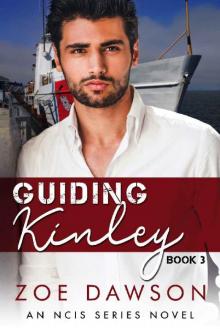 Guiding Kinley (NCIS Series Book 3)
Guiding Kinley (NCIS Series Book 3)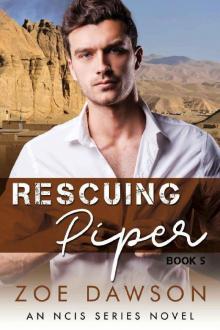 Rescuing Piper (NCIS Series Book 5)
Rescuing Piper (NCIS Series Book 5) Scarecrow: SEAL Team Alpha
Scarecrow: SEAL Team Alpha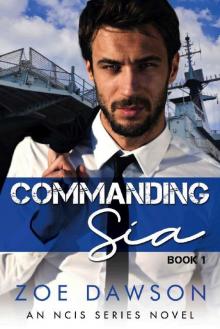 Commanding Sia (NCIS Series Book 1)
Commanding Sia (NCIS Series Book 1) Scarecrow
Scarecrow Protecting Jenna (NCIS Series Book 8)
Protecting Jenna (NCIS Series Book 8) Saint
Saint A Perfect Question
A Perfect Question A Perfect Mistake
A Perfect Mistake Handling Neve (NCIS Series Book 6)
Handling Neve (NCIS Series Book 6) Fetched
Fetched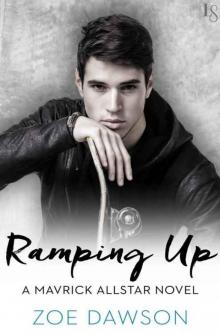 Ramping Up
Ramping Up A Perfect Mess
A Perfect Mess 2-Stroke (SEAL Team Alpha Book 14)
2-Stroke (SEAL Team Alpha Book 14) Mad Max (SEAL Team Alpha Book 12)
Mad Max (SEAL Team Alpha Book 12) Kid Chaos (SEAL Team Alpha Book 2)
Kid Chaos (SEAL Team Alpha Book 2) Ruckus (SEAL Team Alpha Book 1)
Ruckus (SEAL Team Alpha Book 1) A Perfect Wedding
A Perfect Wedding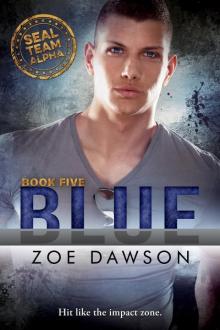 Blue_SEAL Team Alpha
Blue_SEAL Team Alpha Leashed (Going to the Dogs)
Leashed (Going to the Dogs) Finally Again
Finally Again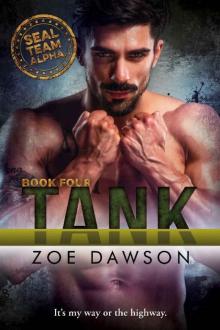 Tank
Tank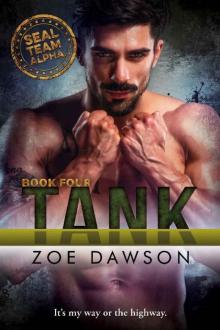 Tank (SEAL Team Alpha Book 4)
Tank (SEAL Team Alpha Book 4) Leaving Yesterday
Leaving Yesterday A Perfect Dilemma
A Perfect Dilemma Mark Me
Mark Me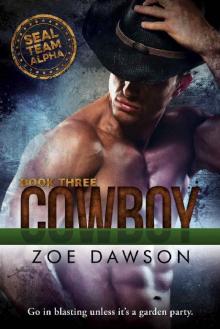 Cowboy (SEAL Team Alpha Book 3)
Cowboy (SEAL Team Alpha Book 3) Playing Rough
Playing Rough Resisting Samantha (Hope Parish Novels Book 10)
Resisting Samantha (Hope Parish Novels Book 10)